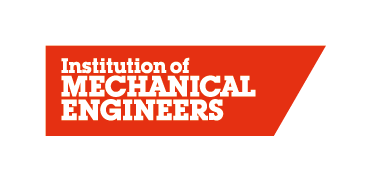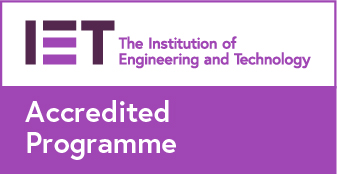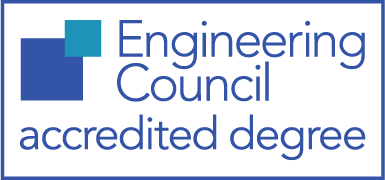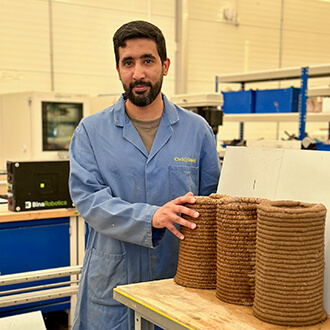Overview
Our Advanced Manufacturing Systems MSc degree focuses on providing you with a unique learning opportunity to develop in-depth knowledge and skills in advanced manufacturing, aiming to produce the leading engineers and researchers required for Industry 4.0 oriented smart manufacturing to improve products and production processes.
This course is designed to address the challenges of modern manufacturing and enterprise systems. It covers a breadth of subjects that enables you to appreciate and deal with the complexities of modern industrial environments. You’ll learn the latest techniques in manufacturing and systems engineering and work on real issues and problems given by our industrial partners.
Built on our world-class research and expertise, this degree addresses the full spectrum of subjects concerning advanced manufacturing including advanced design, manufacturing technologies including manufacturing simulation and robotics, sensors and measurements, data analytics, quality engineering management and supply chain management.
The course is developed with strong industrial advice and the appropriate balance of theory and practice. You’ll be taught by a team of expert staff and industry collaborators and have access to excellent laboratory resources and facilities, including the latest engineering software tools.
Brunel’s Advanced Manufacturing Systems MSc degree is accredited by the Institution of Mechanical Engineers (IMechE) and the Institution of Engineering and Technology (IET). This means your degree will put you on track to gain Chartered Engineer (CEng) status in the UK. It is studied full-time over one year, and you can start the course in either September or January.
Our Advanced Manufacturing Systems and Technologies MSc online gives students and professionals around the world the opportunity to study this master's without leaving their home, offering a unique modern learning experience. This means you can earn your master’s from wherever you live and work. Studying online, you’ll still benefit from connecting to fellow students, professionals, and academics worldwide, through our innovative online learning platform.



You can explore our campus and facilities for yourself by taking our virtual tour.
Course content
As a full-time student of this postgraduate engineering degree, you will study four modules in the first term, and four in the second. You will then spend four months working on your dissertation. This involves an in-depth study of a manufacturing problem or situation, requiring a high standard of investigation and presentation. The analysis of a ‘real’ industrial problem is expected, frequently involving a company or workplace.
Compulsory
- Manufacturing Systems, Design and EconomicsThis module aims to meet the growing need of manufacturing industry for graduates with very high levels of knowledge and skills in advanced manufacturing processes, design of manufacturing systems and management of production facilities, including the understanding of materials and their properties in relation to production processes, the design of products for automated manufacture, advanced, automated production and assembly systems, and advanced and micro manufacturing and production processes.
- Systems Modelling and SimulationThis module aims to encourage systematic thinking and acquiring knowledge and skills to model and analyse modern complex systems.
- Robotics and Manufacturing AutomationThis module aims to provide an understanding and critical awareness to designing and controlling modern automated manufacturing systems, and employs a systems approach in doing so. The module provides an exposure to a variety of industrial and factory automation practices and also an understanding in selecting appropriate automation and control methods for the equipment or process at hand.
- Sustainable Design and ManufactureThis module aims to provide students with methods for analysing sustainability in design, quantifying the quality parameters, calculating and assigning appropriate tolerances, analysing the manufacturing operations for achieving the required quality targets. The emphasis will be on the link between design information and manufacturing operations to produce products and propose operations that reduce the environmental impact of manufacturing.
- Computer Aided Engineering 1This module aims to give the students the knowledge to model the entities, points, edges, surfaces and solids for CAE and the skill to create the computer model of a part or assembly using a contemporary CAE software package (CATIA), and to educate the students in the theory and application of Mechanism Synthesis and Analysis and to equip the students with the skill of modelling mechanisms using the MATLAB and Simulink software packages.
- Advanced Measurement Systems and Data AnalysisThis module aims to help students to gain an in-depth knowledge of basic measurement theory, operating principle of modern measurement techniques, capabilities of practical measuring machines and advanced data analysis.
- DissertationThe dissertation aims to help students develop their problem solving, communication and project management skills to work independently in consultation with their academic supervisor and carry out in-depth investigation of a suitable topic relevant to the course.
Optional
- Design of Mechatronic SystemsThe main aims of this module are to teach the students how to integrate mechanical, electronic and control functions, to critically analyse and use mechatronic design concepts, to apply multiple discipline expertise in an integrating mechatronic process, and to use a contemporary software to simulate power electronic circuits.
- Project Management
This module aims to give students a comprehensive understanding and critical awareness of the latest advanced techniques and strategies for project management, including management tools, management and reporting methods and team building.
- Quality Management and ReliabilityThis module aims to provide an in-depth understanding of the principles of modern quality assurance which underpin the discipline and their applications in engineering, manufacturing and enterprise, and to provide a professional-level working knowledge of the advanced techniques of reliability engineering and an ability to apply them to improving the maintenance, the maintainability and the safety of existing and proposed plant in their workplace.
- Logistics and Global Supply Chain ManagementThis module aims to introduce and develop the fundamental principles and concepts of supply chain management, to investigate the structuring of global supply chain networks, outsourcing and the co-ordination of network partners, to highlight the importance of the customer service dimension as a means of differentiation and the role of logistics in achieving this, and to identify the contribution and impact on supply chains made by E-commerce and emerging IT applications, especially with regard to time based competition.
This course can be studied 1 year full-time, starting in January. Or this course can be studied 1 year full-time, starting in September.
Please note that all modules are subject to change.
Read more about the structure of postgraduate degrees at Brunel
Careers and your future
The in-depth knowledge and advanced skills acquired through this Industry 4.0 oriented programme will prepare you for various career positions and destinations. Our close project links with industry (e.g. Rolls-Royce, TWI and NPL) will further enhance your employability.
Our graduates are ready to become leading engineers, researchers, project leaders or entrepreneurs in manufacturing industry, research organisations and universities.
UK entry requirements
A 2:2 (or above) UK Honours degree or equivalent internationally recognised qualification in an engineering, science or technology subject; Mathematics or Statistics discipline Other subjects with relevant work experience will be assessed on an individual basis.
EU and International entry requirements
If you require a Tier 4 visa to study in the UK, you must prove knowledge of the English language so that we can issue you a Certificate of Acceptance for Study (CAS). To do this, you will need an IELTS for UKVI or Trinity SELT test pass gained from a test centre approved by UK Visas and Immigration (UKVI) and on the Secure English Language Testing (SELT) list. This must have been taken and passed within two years from the date the CAS is made.
English language requirements
- IELTS: 6 (min 5.5 in all areas)
- Pearson: 59 (59 in all sub scores)
- BrunELT: 58% (min 55% in all areas)
- TOEFL: 77 (min R18, L17, S20, W17)
You can find out more about the qualifications we accept on our English Language Requirements page.
Should you wish to take a pre-sessional English course to improve your English prior to starting your degree course, you must sit the test at an approved SELT provider for the same reason. We offer our own BrunELT English test and have pre-sessional English language courses for students who do not meet requirements or who wish to improve their English. You can find out more information on English courses and test options through our Brunel Language Centre.
Please check our Admissions pages for more information on other factors we use to assess applicants. This information is for guidance only and each application is assessed on a case-by-case basis. Entry requirements are subject to review, and may change.
Fees and funding
2025/26 entry
UK
£14,435 full-time
International
£24,795 full-time
More information on any additional course-related costs.
Fees quoted are per year and are subject to an annual increase.
See our fees and funding page for full details of postgraduate scholarships available to Brunel applicants.
Scholarships and bursaries
Teaching and learning
To ensure you receive the maximum support and have the greatest opportunity to reach your full potential the expectation is that you attend in-person all teaching activities including examinations that are scheduled on campus. This will be the majority of all activities. However, where for pedagogical reasons alternative methods of delivery are used for activities you'll be notified and expected to engage with the activity at the time of delivery.
Laboratory Support
For modules with practical learning content, these will be delivered in-person on campus in the laboratories.
Assessment
Traditional examinations will be taken in-person on campus.
Access to specialist software
You'll have access to relevant engineering software on campus. You're also able to install software on your own personal laptop and connect to the Brunel License server through a VPN connection. This provides continued access to all services.
Access to a laptop or desktop PC is required for joining online activities, completing coursework and digital exams, and a minimum specification can be found here.
We have computers available across campus for your use and laptop loan schemes to support you through your studies. You can find out more here.
Our staff have national and international reputations for their research, publications and applied work. This means that your education will be at the forefront of scholarship and practice, covering the most up-to-date industry knowledge.
Your learning will be enhanced through guest speakers from different areas in manufacturing and technology.
Study will combine lectures, seminars, tutorials, supervised laboratory sessions, and individual and group project work.
Should you need any non-academic support during your time at Brunel, the Student Support and Welfare Team are here to help.
Mode of study
1 year full-time
The taught element of the course takes place in Terms 1 and 2. In Term 3, you’ll conduct an individual project and prepare your dissertation.
Assessment and feedback
Your work will be assessed through written exams, assignments, reports, presentations, individual and group projects, and your dissertation project.
Read our guide on how to avoid plagiarism in your assessments at Brunel.
Location of study












